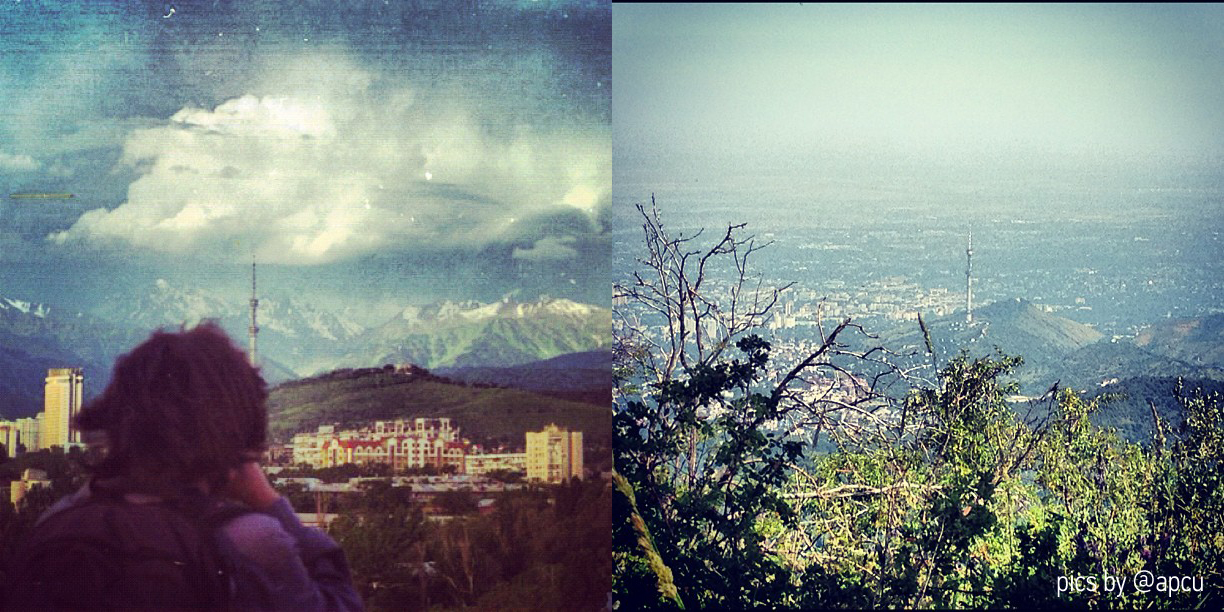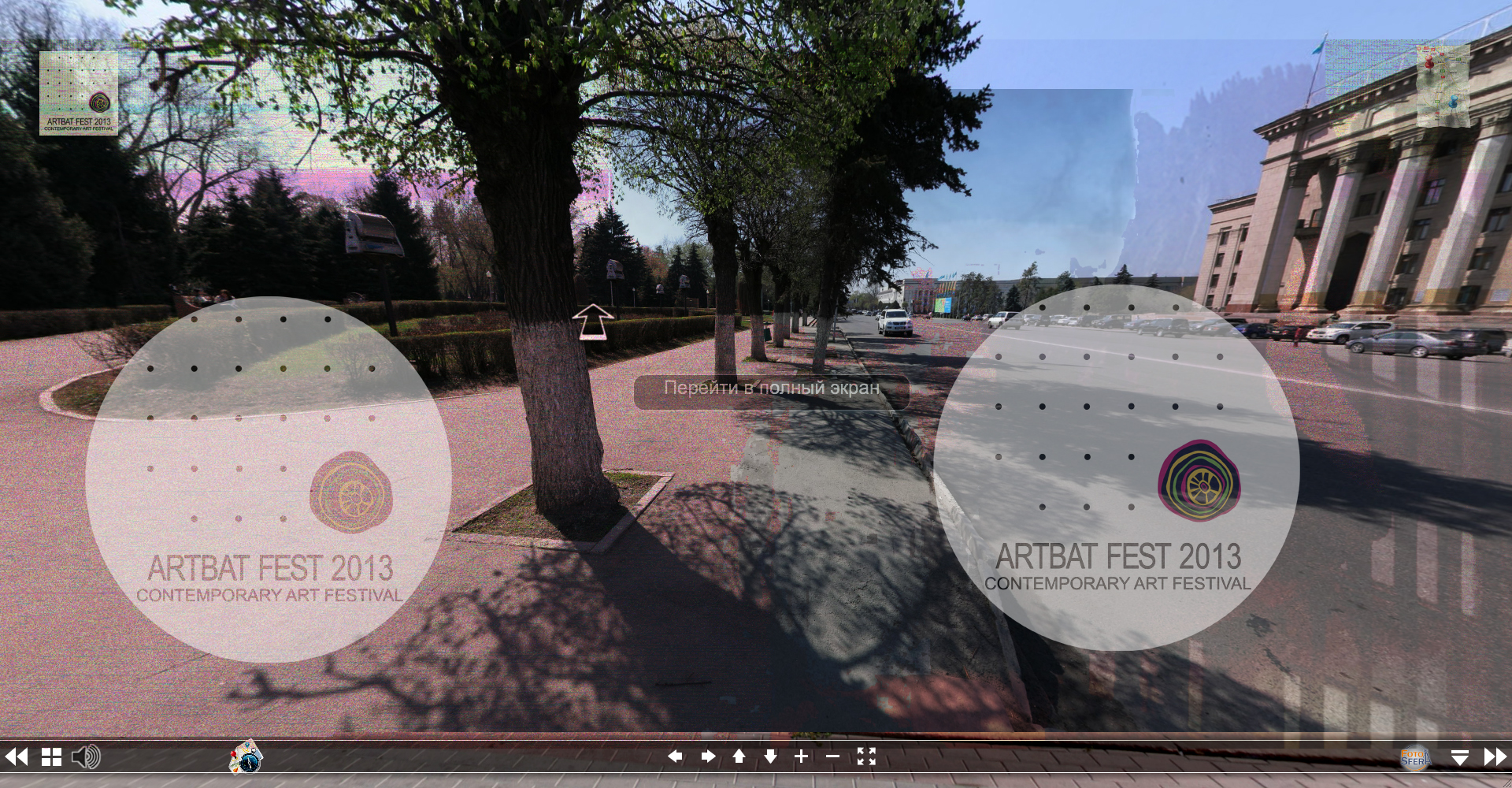
The voice of «People's Commissar’s» house
Vox pópuli vox Déi – the voice of the people is the voice of God. Fairly good proverb. At first I just liked it; then I started thinking: why do I like it? It took some time and I understood – that’s because I am vox, too. In other terms – voice. The voice under my home’s roof. My home is my castle. I don’t exactly remember the moment of my emergence there – but I’m pretty sure that it was something like this.
The house was built in half-remembered soviet times: that was not just a house, but housing complex: first multistoried building in the city - as much as four stories.[1] Upper three stories were occupied by flats, but the first one housed almost everything: hairdressing saloon and the laundry service, grocery stores, sweetshop with scrumptious piroshky, clock and watches repairs, studio, small cinema, apothecary and cafeteria. The cafeteria was fairly ordinary with uncomplicated recipes: chicken soup and vermicelli fish on Tuesdays and Thursdays, and dungan noodle soup, one-day-old cabbage soup and cutlet with the same vermicelli. Solid, cheap and unpretentious. In the center of kitchen there was technical novelty – huge electrical cooker with four cooktops. The cook was glad but used it with caution – the thing was expensive and new - it will come to no good. And it actually didn’t: on seventh November the population of huge country from baby to adult went to streets with flags, banners and gigantic portraits of Chieftains of world’s proletariat. Demonstrations in honour of Russian revolution were equally triumphant in cities, villages, high-mountain auls, steppe kishlaks, polar wintering grounds.
After passing the central square as a single column, people spread out into streets and alleyways to celebrate: families went on their visits and the young people ran into the cafeteria – just to have a bite before the discussing the topic of the day. Dancing till the morning followed!
The united crew of the cafeteria by no means could catch up to prepare the meals because all of them went to the streets in the united urge to attend demonstration. So, the staff came and greeted the director:
- Mitrophan Stepanych, we have no opportunity to simultaneously cook the cabbage soup and properly represent the “Obschepit” trust group during the demonstration with our flags.
By the way, workers of the cafeteria of housing complex were entrusted (as foremost workers) with carrying the banner, three flags and the portrait of comrade Mikoyan himself, the People's Commissar of food manufacturing industry.
- Be an angel, give us a cue, we’ll live up to it!
Mitrophan Stepanovich, the wise-head, spread his moustache with his thumb and said:
- Now you guys cook the meat for cabbage soup right away today and turn the kitchen stove off for the night after you fill the tank with what you must by technology. Then turn the thing on at idle next morning and we all go to the demonstration.
Cheery workers soup ladles and cooking pots cooked the meat, put cabbage, carrots, potatoes, onion and laurel leaves into the bouillon; then switched off the lights, locked the door. And nothing else than forgot to turn off the kitchen stove. That is how the entire staff went into the camps by the article 68 instead of going to demonstration. And Mitrophan Stepanych who gave the order was executed by gunshot.
So, that is how I appeared from steam and smoke and innocent and guilty souls. I became frined with the House, settled down where I was born – the cafeteria was redecorated and “redesigned”. Huge letters were attached to the side of the building from upside down: “BLINNAYA”. The pancakes were cooked on frying pans, then on the drum utilizing continuous-flow method. And again it was cheap and nasty: a couple of pancakes with jam, butter or sour cream. So, mainly students fed here. And there were two schools in the vicinity… How much knowledge I collected during these years! Entire school programme and high school, too – though humanitarian courses only. Physicians and mathematicians were rare guests. Now I can speak fluently on several languages and additionally manage several types of eastern martial arts, theoretically, at least.
In the 80s when the Perestroika began private company opened cooperative café “Blue ship” near the “Blinnaya”. That enriched my knowledges, especially concerning gender relations.
When independence came, the café was privatized and all hell broke loose! Innkeeper were changing twice a year, at an average. They did makeovers, changed the name, opened the inn, closed it, did makeovers… There were all sorts of names: laghman – house “Mustafa”, “Three gudgeons” gas house, “Altair” café, “Incan gold”, “Cleopatra”, just “Snack-bar”. The most humoring name was “On a visit to B…”. although not, that was from another Voice. And again – “Under the moon”, “Ancestors’ covenants”, “Sindbad the Sailor”, “Berezka”, “Eastern” coffee house, “Cupcake and pudding”. Nowadays my former cafeteria is proudly called “Malina”.
Different people come here for different things: someone just to sit and spend some time; some of them come to eat and drink and talk; someone to solve a problem; others to impart happiness or grief. They come in the morning, at daytime or in the evening. They sit “to a man”: doctors and businessmen, poets and architects, actors, racketeers, sales managers, journalists, bikers, rappers, mountain climbers, ballet dancers and politicians. Each one of them has his own story enough to sink a battleship…
06.11.2012.
[1] In 1931 in Moscow was built largest in Europe (for that time) apartment complex – First House of Soviets (House on the Seafront). Tenants of the house were mainly scientists, party workers, heroes of the Civil War, Socialistic Labour and of Soviet Union, old Bolshevists, prominent writers, workers of Communist International, heroes of the Spanish war. In Almaty, 1934 – 1937, there were built (in the image and likeness of the House on the Seafront) apartment complexes - housing complexes 1 through 4 – by the Furmanov street with turn to the Kirov street (Bogenbai batyr) on the one side and Kalinin street (Kabanbai batyr) on the other side. These were first multi – storied houses in Alma – Ata – with three or four stories, with water supply systems, waste-water disposal systems and centralized heat supply. Before face of the gray building on Furmanov street (it was nicknamed “People's Commissar’s house”) still remains intact the fountain – the first fountain of the city. And the accommodations in the house on Kalinin street were of shared type.
_____
Elena Klepikova 2013
_____
Almaty writer Yelena Klepikova has gathered stories about hidden lanes, boulevards and yeards of Alma-Ata, the city, which is still alive in the memories of its inhabitants, legends, true stories, anecdotes and kitchen talks. Here we publish stories taking place in the streets of Almaty, which this autumn shall become the territory of ARTBATFEST 2013.
_____
We have elaborated special virtual tour to travel across the festival map. Currently there are 18 spots to explore and to get familiar with the city. There will be more spots to explore soon.
http://artbat.kz/touren/tour.html
Have nice trip to Almaty!

